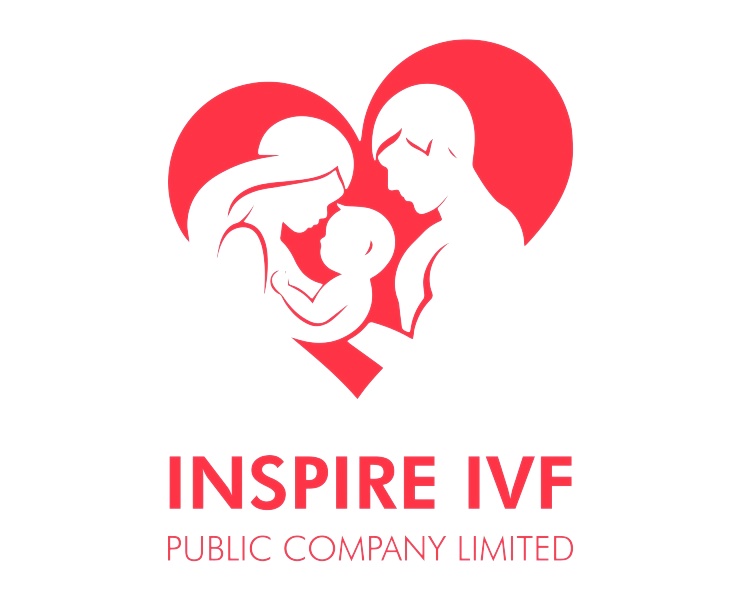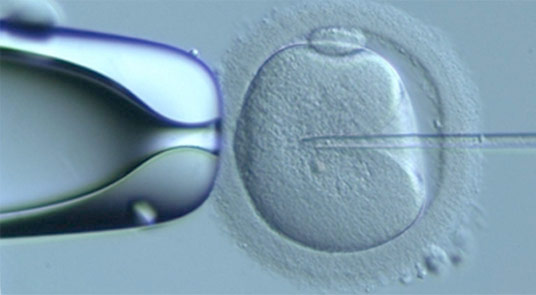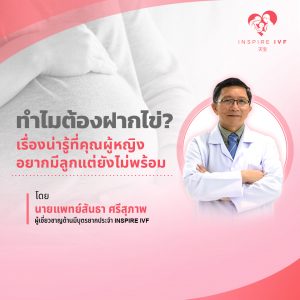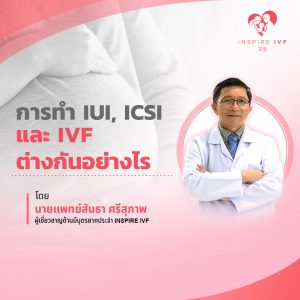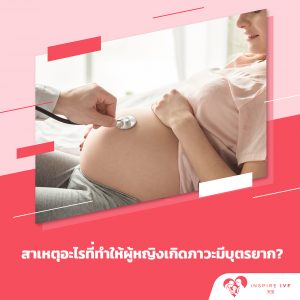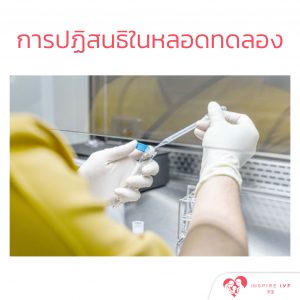Infertility is an increasingcommon problem, possibly with lifestyle changes. Factors leading to older spouses before planning to have children. Underlying physical or genetic disorders,all of these are the cause of the condition.
Nowadays, infertility treatment is now widely accepted because in addition to providing satisfactory results, IVF can also reduce the risk of your child having genetic disorder.
IVF, both IVF and ICSI, consist of the main steps: egg stimulation, female egg collection, fertilization, embryo culture and transfer the embryo back to the uterus for further growth. Both methods have different advantages. However, which method of treatment will be chosen by doctor’s discretion as well as the condition and readiness of the patient.
Who should have IVF?
- The spouse who fallopian tubes were blockedorfallopian tube was destroyed.
- The spouse who woman has endometriosis in the wrong place or have an abnormal ovulation.
- The male spouse has low quantity spermor sperm doesn’t move well.
- Spouses who do not know the reason for infertility and tried to have children for more than 3
- A married couple who had a direct injection of sperm into the uterine cavity (IUI) but were not pregnant.
IVF ( Invitro fertilization )
IVF isone part of IVFmethod that scientists collected eggs cell and prepared sperm into a culture dish, then eggs cell and sperm mix togethersimilar to natural fertilization. Whentime is up, the scientists will transfer the fertilized embryos into the embryowaiting to be transferred back to the uterus.
ICSI method
ICSI ( Intra Cytoplasmic Sperm Injection) In a marriage who male is normally unable to ejaculate normally ejaculate sperm is incomplete, the chances that egg cells and sperm will fertilize and develop into an embryo is difficult.Step of doing ICSI is scientists was select healthy sperm injected into a single egg id to fertilization, then result successful embryo is transferred to EmbryoScope Plus and when suitable time doctor will transfer the embryo back to uterine wall (which may be Day3- Day6 ofembryo) continue to grow into infant.

The ICSI is suitable for the spouse who
- Male is unable to ejaculate by himselfmust be performed TESE / PESA.
- The sperm are abnormal or not completely healthy.
- The people have a previous history of IVF, not successful or unable to be embryo or have few fertilized embryos.
- In couples with hereditary disease or in couples requiring pre-embryo transfer (PGT) genetic screening.
- In couples who used frozen sperm for treatment.
What is the difference between IVF and ICSI?
Both IVF and ICSI are embryo fertilization procedures, both of which differentwas IVF (In Vitro Fertilization) allows sperm to mix with egg cell by itselfsimilar to a natural fertilization procedurebutICSI, scientists inject sperm directly into the egg cell to aid fertilization (Intra Cytoplasmic Sperm Injection). As a result, ICSI increases the chances of fertilization and results in more embryos than IVF.
